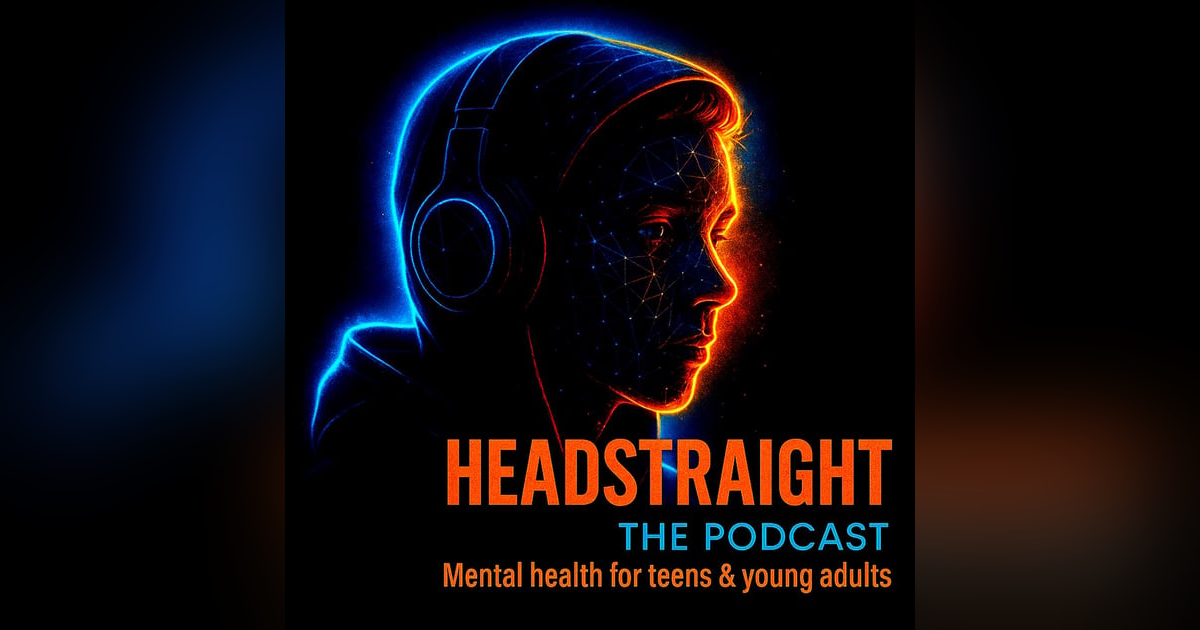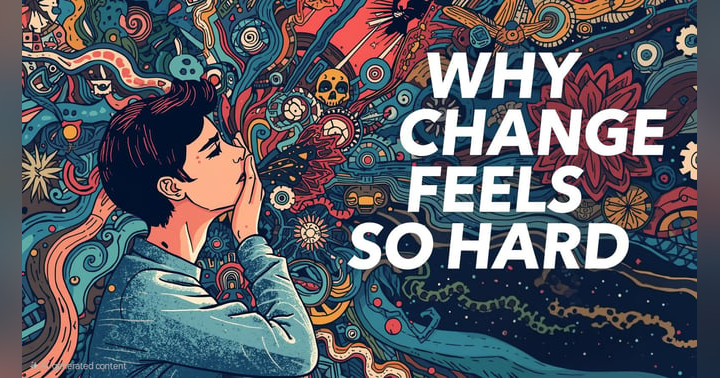S2E6 - Why Change Feels So Hard—and How to Make It Stick


You’ve made plans. Set goals. Promised yourself this time would be different—only to find yourself back in the same place again. Sound familiar?
In this episode of Headstraight, we explore why change doesn’t just feel hard—it feels impossible. But here’s the truth: you’re not lazy, broken, or weak. You’re just going up against a brain that’s wired to resist change—even when you want it.
This episode breaks it down:
- Why your brain treats new habits as unsafe—even if they’re healthy
- The identity clash that makes change feel like betrayal
- Why “failure” is often just resistance disguised as protection
- How to shrink your goals to make them feel safe and doable
- What real resilience looks like (hint: it’s not about being perfect)
- Five action steps to start rewiring your habits—today
If you’ve ever thought:
- “I just can’t stick with anything”
- “Why do I always sabotage my progress?”
- “Change feels exhausting and I don’t know why”
…this episode is for you. No fluff. No shame. Just honest insight and simple steps that actually work with your brain—not against it.
Listen now and learn how to make change feel possible—one small move at a time.
Want the Cheat Sheet? Click the Link or copy and paste the following into your browser:
https://docs.google.com/document/d/1cQ5j66u_T1xmde6cR0fQzP8FGcEPZs9c/edit?usp=sharing
Got something to say? - come send me a message at www.headstraight.co.uk/contact/
or send me a voice note at www.headstraight.co.uk/voicemail/
Click here if you want more info about the host
If you need more information about helplines, services or what do to if you're in a crisis, take a look at our resource page: https://www.headstraight.co.uk/resources
My name's Mark, and you're listening to Head Straight. Hello, you lot, and welcome back. And let's get straight into it. You've tried to change. You've set goals, made plans, promised yourself this time's gonna be different, And then somehow you find yourself right back where you started again.
Mark:And when that happens, it's easy to go straight to, I'm lazy. I've got no discipline. I just can't do this. But here's the truth. You're not lazy, broken, or weak.
Mark:You're just going up against a system. Your brain. That's wired to keep things exactly as they are. Now this episode isn't about more motivation or tougher goals. It's about understanding the very real reasons why change feels so hard and how to finally work with your brain, not against it.
Mark:So let's dig in. Now change isn't just hard. It feels unsafe. So let's start with the science. Your brain's number one priority is survival, not success, not happiness, just predictability and safety.
Mark:And that means that your brain loves the familiar, even if it's toxic, stressful or clearly not working. So when you try to change, you're not just introducing a new habit, you're threatening a system that's been wired to protect you. Sounds weird, but it's true. Your brain sees new habits as a risk. It sees sticking to old routine even if it makes you miserable as safe.
Mark:That's not sabotage. That's just biology. So just now, about a habit that you've tried to break, something you know isn't serving you very well. What does the old pattern give you? Even if it's something unhelpful like control, distraction or comfort.
Mark:Now the one thing that you need to understand is change challenges who you think you are. So let me help you to understand that more. When you try to change your behaviour, you're also changing your identity. Because if you've always been the one who keeps the peace, shows up for everyone else, stays quiet to avoid conflict, then trying to set boundaries or say no or speak up, it just won't feel awkward. It'll feel like betrayal.
Mark:Because deep down your brain believes that's not who we are. It isn't just about breaking a habit, it's about breaking the rules that kept you accepted, liked or safe for years. That's why the resistance is so strong. It's not about the habit itself, it's about what the habit represents. So a bit of a truth bomb.
Mark:Sometimes the change can feel like grief. You're letting go of an old version of yourself, even if that version was struggling. Now let's be blunt real change feels awkward, messy and wrong at first and that's not a red flag it's a green light. You're not supposed to feel confident when you're doing something new. You're supposed to feel wobbly, unsure, exposed.
Mark:That tension that you feel? It's not failure. It's just your brain noticing that this is different. And that's exactly what you want because difference is how change happens. So maybe try a mini mindset shift.
Mark:Stop asking why is this so hard? And start asking what am I learning right now? Now let me tell you about how to work with resistance and not against it. Because you can't force change by brute strength. Your willpower isn't the problem.
Mark:It's the strategy. And here's how to start making change that actually sticks. Remember, shrink the task. If it feels overwhelming, then just make the task smaller. You wanna write in your diary every day?
Mark:Start with just one sentence. You wanna work out? Maybe do two minutes of movement. Want to stop doom scrolling? Then just put your phone in another room just for ten minutes.
Mark:Small equals safe. Safe equals sustainable. The next thing to do is reset instead of restart because slip ups are gonna happen. And that doesn't mean that you have to go back to square one. You don't need a perfect streak.
Mark:You need persistence. Pick it back up. Keep going. Don't waste energy punishing yourself. And also challenge normal.
Mark:Just because a pattern feels familiar doesn't mean it's right. It means it's rehearsed. So start teaching your brain new normals gently, consistently. So let's talk about the reasons why resilience is more than perfection. And this is the part that separates people who change from the people who stay stuck.
Mark:It's not how they start, but how they recover. You will mess up. You'll miss a day, fall back into old habits, feel like giving up. But confident changes don't spiral when that happens. They reset, They reframe.
Mark:They keep going. So say to yourself, today was rough, but I'm still in the game. This isn't about perfection. It's about momentum. If I can show up tomorrow, then I win.
Mark:It's not about doing it flawlessly. It's about doing it again and again and again. So let me set your action steps for this week. First one is name the habit that you're trying to shift. What's the one thing that keeps pulling you back?
Mark:And why does it feel so hard to change? Second one, break it down. Shrink it. What's the tiniest version of this change that you can try today? The third one is catch the identity clash.
Mark:What's the old label that you're afraid to let go of? Write it down and be really honest about it. Fourth one is reframe a slip up. When it happens and it will, don't spiral, pause, reset, and say, this is part of the process. Fifth point is practice recovery.
Mark:The goal isn't perfect execution. The goal is about bouncing back. So what's coming up in the next episode? Next time we're getting into something that we all face. How do you keep going when you've got nothing left in the tank?
Mark:Because knowing what to do is one thing, but having the energy to keep doing it? That's a whole different skill. So until then, remember, change doesn't mean fixing who you are. It means evolving who you're becoming. So until then, keep good.













